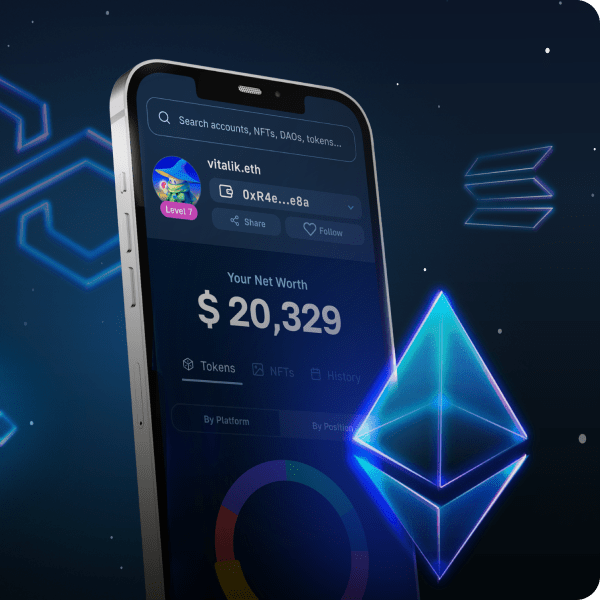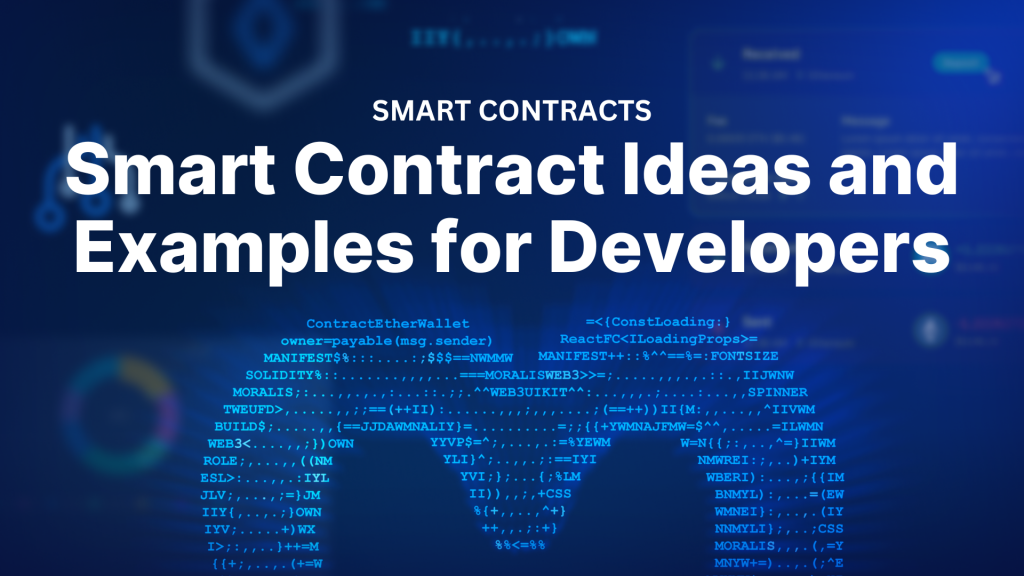
Smart contracts are at the core of the blockchain industry, and they are revolutionizing several sectors by streamlining workflows, reducing costs, and laying the foundation for new, groundbreaking ideas. However, despite the growing significance of smart contracts, many are unfamiliar with this transformative technology. So, what are smart contracts? And how can developers use this tech to build better platforms? If you want the answers to these questions, look no further. In this article, we’ll provide a comprehensive list of smart contract ideas, examples, and use cases to highlight the utility of this innovative technology!
Overview: Smart Contract Ideas and Examples
We will kickstart today’s article by answering the question, ”What are smart contracts?”. In doing so, we’ll explain what they are and cover some prominent benefits of this tech. From there, we’ll dive straight into our list of smart contract ideas and use cases, where we’ll cover the following seven examples:
- Finance: Optimize Efficiency and Reduce Costs
- Real Estate: Track Property Details and Renting
- Healthcare: Protect Sensitive Medical Records
- Logistics: Improve Supply Chain Management and Shipping
- Insurance: Optimize Insurance Claims
- Music: Improve Copyright Management and Ticket Systems
- Gaming: Automate Transactions and Add New Features
Next, we’ll also cover some prominent tools that can come in handy if you want to develop your own smart contracts. Lastly, we’ll explore Moralis’ industry-leading Web3 API suite to top things off!
In Moralis’ suite of development tools, you’ll find interfaces like the NFT API, Wallet API, etc. With these APIs, you can seamlessly build everything from NFT-based projects to your own Web3 wallet without breaking a sweat.

As such, if you’re interested in Web3 development, consider signing up with Moralis. You can create an account for free, and you’ll gain immediate access to all our premier development tools!
What are Smart Contracts?
Smart contracts are essentially programs that are stored and run on blockchain networks like Ethereum, BNB Smart Chain (BSC), Polygon, and Solana. These programs autonomously execute whenever predetermined terms are met, making them ideal for automating the execution of agreements between two or more participants where everyone involved can be sure of the outcome. Moreover, since code handles these agreements, there’s no need for any middlemen or intermediary involvement.
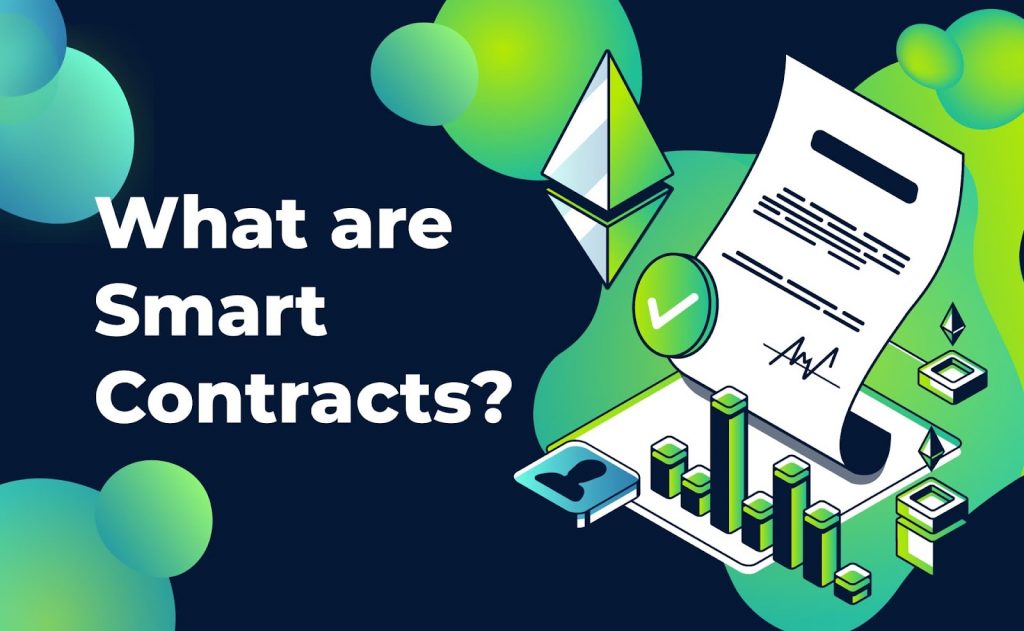
Most smart contracts generally consist of two central parts: a collection of code and data. The code comprises the functions of the smart contracts; meanwhile, the data is its state. Furthermore, each contract’s code and data reside on a particular address on a blockchain network.
An alternative way to look at smart contracts in simpler terms is to use a metaphor and view them as digital vending machines. This is quite an accurate analogy, and it aptly captures the essence of smart contracts. These programs always deliver a specific output upon completing a predetermined input process – much like inputting money, selecting a product, and receiving the chosen item in the case of conventional vending machines.
Nevertheless, that covers the basics of smart contracts. To dive deeper into this topic, check out our article called ”What are Smart Contracts?”.
What are the Benefits of Smart Contracts?
There are many benefits to using smart contracts, and in this section, we’ll explore four prominent examples:
- Autonomy: Smart contracts remove the need for trusted intermediaries, enabling a higher degree of autonomy when it comes to transactions and other processes.
- Trust & Transparency: Since there’s no third-party involvement and because transaction records are shared across the blockchain network, there’s no need to question whether the information has been altered for personal gain.
- Efficiency: As soon as a condition is met, the contract wastes no time and executes immediately. Moreover, since smart contracts are digital and automated, they minimize the potential for human error.
- Savings: With smart contracts, intermediaries don’t need to handle transactions, which removes associated time delays and unnecessary fees.
Now, with an overview of smart contracts and their benefits, let’s explore some use cases, ideas, and examples!
7 Smart Contract Use Cases, Ideas, and Examples
There are countless ideas and examples of how to use smart contracts, and we won’t be able to cover them all in this article. As such, we have narrowed it down to seven prominent examples:
- Finance: Optimize Efficiency and Reduce Costs
- Real Estate: Track Property Details and Renting
- Healthcare: Protect Sensitive Medical Records
- Logistics: Improve Supply Chain Management and Shipping
- Insurance: Optimize Insurance Claims
- Music: Improve Copyright Management and Ticket Systems
- Gaming: Automate Transactions and Add New Features
So, without further ado, let’s dive into the first example and look at ideas of how smart contracts can be used in the finance sector!
Finance: Optimize Efficiency and Reduce Costs
Smart contracts can remove costly errors and automate workflows within the traditional finance sector. Furthermore, smart contract technology has paved the way for decentralized finance (DeFi) platforms to provide financial services without unnecessary intermediaries to optimize efficiency and minimize costs.
The Web3 industry already features multiple established DeFi platforms like AAVE and Curve Finance that use smart contracts to provide advanced services such as borrowing, lending, derivatives, etc. And if you’d like to explore some prominent examples, check out the DeFi tools page on Moralis’ Web3 Wiki!
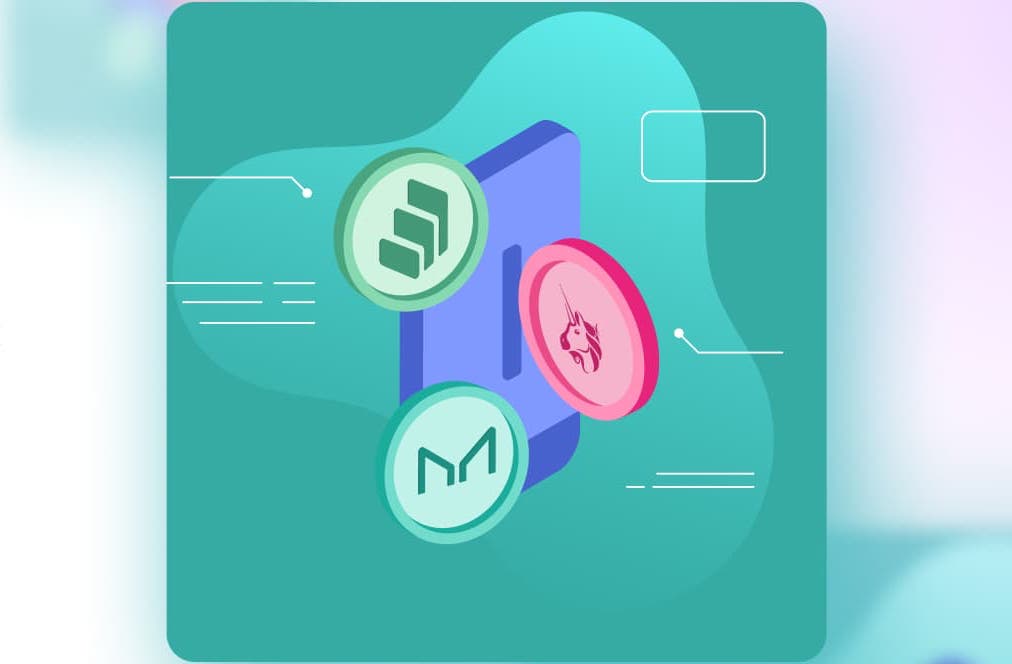
Real Estate: Track Property Details and Renting
Two potential ideas for using smart contracts in the real estate industry include expediting property ownership changes and optimizing rental processes!
For instance, when a buyer pays the seller, a smart contract can autonomously shift property ownership based on the information on-chain. This can significantly improve transaction speed and efficiency by reducing the need for brokers and lawyers.
Properties can also be rented using smart contracts. And they can be programmed with sophisticated logic. For example, if a maintenance order is submitted on-chain, the smart contract can realize this and lock rent until the issue is resolved.
Healthcare: Protect Sensitive Medical Records
Healthcare institutions can leverage blockchain technology and smart contracts to reliably automate processes and implement solid security measures. For example, a medical provider can use smart contracts to securely store sensitive data on a blockchain network while simultaneously allowing patients to access and retrieve their own information. That way, patients can make sure that their medical provider has access to the information they need to provide care and that it’s kept securely.
Logistics: Improve Supply Chain Management and Shipping
Two promising ideas for using smart contracts to improve logistics are to optimize supply chain management practices and shipping processes!
For instance, when it comes to supply chain management and shipping, an item effectively changes ownership status once it reaches its final destination, meaning it’s essential to follow the flow of goods. And this process can be optimized through smart contracts.
By using smart contracts, everyone in the supply chain can track the location of goods as immutable information is stored on-chain. That way, if an item is lost during the process, it’s easy to locate where the error occurred.
Smart contracts can also be used to automate routine payments and tasks so that supply chain members don’t need to waste time with unnecessary communication.

Insurance: Optimize Insurance Claims
Smart contracts can be used within the insurance industry to automate claims management and reduce fraud. For instance, there are organizations that have been using smart contracts to deal with flight delay insurance claims. In this case, the contract was connected to an air traffic database, and when it detected a two-hour delay, payments were automatically triggered.
All in all, automating and optimizing claims management in this way shortens processing times and reduces costs. In return, this could result in lower prices and rates for consumers.
Music: Improve Copyright Management and Ticket Systems
Two ideas and examples for using smart contracts in the music industry are to improve copyright management and ticket systems!
For example, smart contracts can simplify and facilitate royalty payments for artists and bands. They can be used to record the ownership and other aspects of digital copyrights, including the percentage of royalties that should go to labels, artists, etc.
Event organizers or ticketing services can use smart contracts to create NFT tickets. This can solve issues such as extremely high markups on second-hand tickets by restricting resale prices or adding terms in the contract that ensure that the artists get a part of the profit.

Gaming: Automate Transactions and Add New Features
Smart contracts can be used in the gaming industry for new monetization and fan engagement opportunities. For instance, with smart contracts, it’s possible to automate common transactions and add new features, such as players buying and selling in-game items, initiating specific actions, breeding characters, etc.
Some common examples of Web3-based games using smart contracts include Axie Infinity and CryptoKitties. Axie Infinity is one of the most popular play-to-earn (P2E) games where players can sell land, breed characters, and claim rewards. CryptoKitties is one of the first blockchain-based games, allowing players to collect, breed, and trade virtual kittens.
Nevertheless, the topics and examples featured in the list above are only seven prominent ideas, and when it comes to smart contracts, you have a lot of room for creativity!
Tools to Realize Smart Contract Ideas
With the growing demand for smart contracts, we have seen the rise of many prominent tools you can use to effortlessly realize your ideas. Moreover, there are different types of smart contract tools, and in this section, we’ll introduce you to five examples:
- Web3 Wallets: Web3 wallets are digital platforms that allow you to seamlessly store and manage all your cryptocurrencies, including testnet tokens you need when developing smart contracts. Two prominent examples of Web3 wallets include MetaMask and Gnosis Safe.

- Programming Languages: There are multiple programming languages specially designed to make smart contract development more seamless. The most popular example is Solidity, which is used to write EVM-compatible contracts. Moreover, there are many Solidity tools you can use to make your development endeavors easier.
- Libraries and Frameworks: Libraries help you to effortlessly integrate the functionality you need to build smart contracts. A prominent example is OpenZeppelin, a standard Solidity library that, among other things, provides NFT smart contract templates.
What’s more, there are multiple frameworks you can use for creating, compiling, testing, and deploying smart contracts. Two examples are Remix and Hardhat.
- Crypto Faucets: Even when developing smart contracts on a testnet, you must still pay transaction fees. However, with crypto faucets, you can seamlessly load up your Web3 wallet with testnet tokens for free. You can find a bunch of faucets for multiple networks on Moralis’ crypto faucets page.
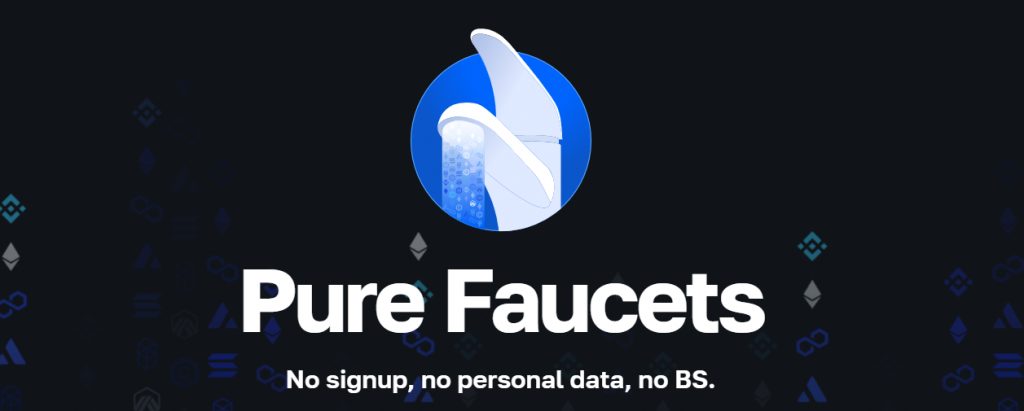
- Block Explorers: Blockchain explorers allow you to search for real-time and historical information about a blockchain. This will enable you to, for instance, validate your transactions when building smart contracts. Some examples include Etherescan and PolygonScan.
If you want to learn how to realize your smart contract ideas, check out our guide on how to write a smart contract in Solidity!
Beyond Smart Contract Ideas, Examples, and Use Cases – Introducing Moralis’ Web3 API Suite
Now, with an overview of what smart contracts are and some ideas of how this technology can be used, you might be interested in building your own decentralized applications (dapps). If this is the case, join us in this section as we introduce you to Moralis!
Moralis is an industry-leading Web3 API provider, and with our premier interfaces, Web3 development becomes as easy as Web2. As such, when working with Moralis, you can build everything from an on-chain wallet tracker to an NFT marketplace without breaking a sweat!
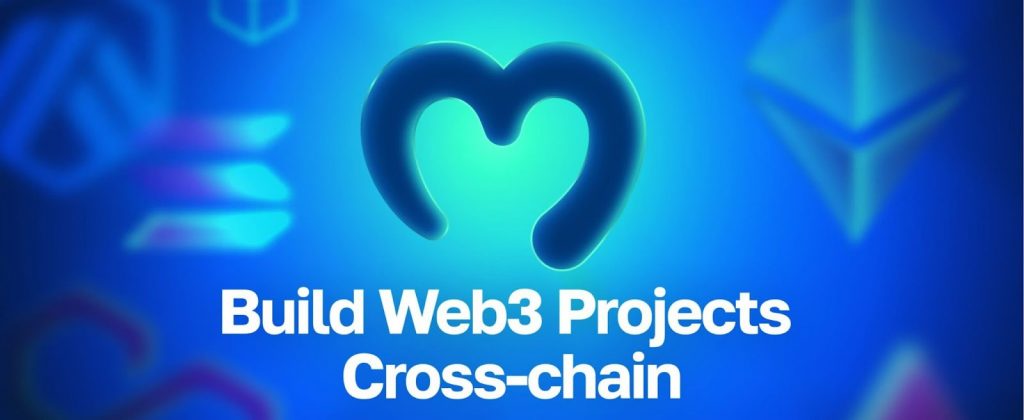
So, why should you build with our APIs?
- Top Performance: All of Moralis’ APIs provide top performance. It doesn’t matter if you want to judge by speed, reliability, or any other metric – our interfaces blow the competition out of the water.
- Accessibility: With our APIs, you can query NFT data, wallet data, blockchain data, etc., with single lines of code. As such, when working with Moralis, all the data you need is at your fingertips.
- Cross-Chain Compatibility: Moralis is chain agnostic. As such, with our APIs, you can seamlessly build cross-chain compatible dapps on all major chains. These chains include Ethereum, BSC, Polygon, Solana, and many others.

You can check out all interfaces by visiting the Moralis’ Web3 API page! Also, did you know you can leverage our Web3 APIs for free? Simply sign up with Moralis, and you’re ready to go!
If you’d like to explore new dapps, tools, and blockchains you can leverage when building your own projects, check out the Web3 Wiki – Moralis’ premier dapp store.
Summary: Smart Contract Ideas and Examples for Developers
In today’s article, we covered seven smart contract ideas, examples, and use cases:
- Finance: Optimize Efficiency and Reduce Costs
- Real Estate: Track Property Details and Renting
- Healthcare: Protect Sensitive Medical Records
- Logistics: Improve Supply Chain Management and Shipping
- Insurance: Optimize Insurance Claims
- Music: Improve Copyright Management and Ticket Systems
- Gaming: Automate Transactions and Add New Features
If you have followed along this far, you now have an idea of how smart contracts can be used in several different industries!
If you liked this smart contract ideas and examples article, consider checking out more content here on the blog. For instance, learn how many blockchains there are or explore the differences between Polygon PoS vs Polygon zkEVM.
Also, if you want to build Web3 projects yourself, don’t forget to sign up with Moralis right now. You can create your account free of charge, and you’ll gain instant access to all our industry-leading Web3 APIs!
